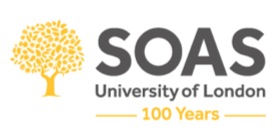Speaker: Helen Lawton Smith, Professor of Entrepreneurship, Birkbeck, University of London & Oxford University and Dimitris Assimakopoulos, University of Lyon
Time: Wednesday, 23 October 2019, 13:00-15:00
Venue: S314 (Paul Webley Wing, Senate House)
Abstract
Since the early 2000s, studies have highlighted the role of knowledge organisations as such national laboratories and research universities in innovation led-regional economic development. Their role as territorial actors encompasses contributing to the building of clusters and local economies (Feldman 2003, Lawton Smith 2003, Autio 2014, Smallbone et al. 2015). Over time, national science and innovation policies change and with them the consequences of the engagement of the science base organisations with industry (Autio 2014), the spatial organisation of relationships and, under some conditions, new pathways to regional economic development.
The paper is about science-based regional development and its implications for regional policy. It uses the two case studies of Grenoble (France) and Oxfordshire (UK) to explore the relationship between knowledge organisations and processes of innovation-led regional development through a longitudinal perspective. These are places that have ‘bet their futures on scientific advance’.
The paper examines the forms that government intervention takes through investments in knowledge organisations in clusters within high tech economies, how they result in particular specialisation of technological advance and the extent to which these are sustained by other forms of policy intervention. Hence, paper is concerned with explaining how they are diverging and what is sustaining the territorial role in each location.
We argue that a major difference lies in the orchestration of research-based networking in Grenoble as a consequence of French cluster policy, whereas in Oxfordshire, the government’s direct role in funding the research base remains that of sustaining the engagement. We demonstrate that it is the cluster architectures for knowledge, talent and capabilities in new emerging technologies (KETs) (Fransman 2008, Huber 2012, Assimakopoulos et al. 2015) in the form of networking, particularly dyadic relationships that explain the differences in how they broker interaction in the two places.
Such relationships between public research and enterprises help to understand that this is not just the application of research but that this relationship may initiate particular research, allow for socio-economic development and may contribute to (rather than just participate) to innovative processes, global pipelines and value chains which link people with places elsewhere (Bathelt et al 2004, Storper and Venables 2004, Birch 2015). The longitudinal approach indicates differing causalities in the character of processes which emerge in time and space. A key point of comparison is how network architectures are configured and how they have changed over time.
The seminars are sponsored by grants from DFID and ESRC [ESRC Ref: ES/N013344/2], ESRC and NSFC [ESRC Ref: ES/P005241/1] and AXA Research Fund

